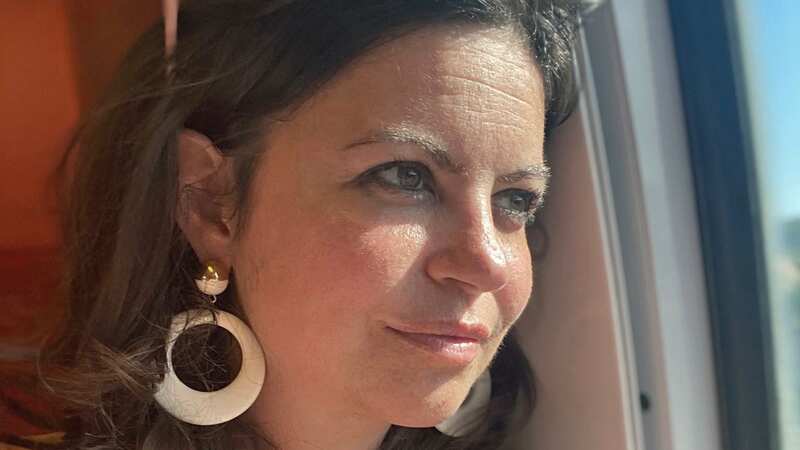World-first breakthrough on bowel cancer one year after Dame Deborah's death
A world-first research breakthrough has sparked fresh hope for patients with the same cancer that killed Dame Deborah James.
Australian scientists have discovered a new "roadmap" to beating bowel cancer. They found an important group of immune cells in the large bowel - called gamma delta T cells - are "crucial" to preventing the disease that claims tens of thousands of lives every year.
The breakthrough was made by researchers at the Olivia Newton-John Cancer Research Institute in Heidelberg, Australia, named after the Anglo-Aussie singer who succumbed to cancer, aged 73, last year. The BBC journalist and podcast presenter chronicled her battle with early onset bowel cancer, before her death, aged 40, in June last year.
The research team say there is an "urgent" need to discover more effective treatments and improve bowel cancer screening, particularly for early-onset bowel cancer as Australians born in 1990 onwards have double the risk of developing bowel cancer compared with those born in 1950. And they said younger bowel cancer patients often have poorer outcomes as they only turn to their doctor when the disease is already in its later stages.
Immunotherapy is one of the most promising new treatments for cancer. It involves boosting the ability of immune cells to recognise and remove cancer cells. However, less than one-in-10 bowel cancer patients respond to current immunotherapies.
 EastEnders' Jake Wood's snap of son has fans pointing out the pair's likeness
EastEnders' Jake Wood's snap of son has fans pointing out the pair's likeness
Study principal investigator Dr Lisa Mielke said: "We have discovered that an important group of immune cells in the large bowel - gamma delta T cells - are crucial to preventing bowel cancer. Gamma delta T cells act as our frontline defenders in the bowel.
"What makes these immune cells extraordinary is that they constantly patrol and safeguard the epithelial cells lining the bowel, acting as warriors against potential cancer threats. When we analysed bowel cancer patient samples, we found that when more gamma delta T cells were present in the tumours, these patients were reported to have better outcomes and improved survival."
She explained that the large bowel contains trillions of bacteria, viruses and fungi, collectively known as the microbiome. While some bacteria are associated with disease, others are extremely important for the immune system.
Study co-lead author Marina Yakou says the research may lead to improved treatments for cancer patients in the future. She said: "We discovered that the amount, and diversity of, the microbiome in the large bowel resulted in a higher concentration of a molecule called TCF-1 on Gamma delta T cells compared to other areas of the gut.
"This molecule (TCF-1) suppresses our natural immune response, the gamma delta T cells, from fighting off bowel cancer. When we deleted TCF-1 in gamma delta T cells using pre-clinical models, this fundamentally changed the behaviour of these immune cells and we saw a remarkable reduction in the size of bowel cancer tumours."
Ms Yakou, a PhD candidate at the Olivia Newton-John Cancer Research Institute, added: "Our world-first research breakthrough paves a new roadmap for developing targeted combination immunotherapies to more effectively treat bowel cancer patients." The researchers say their findings, published in the journal Science Immunology, also open up new possibilities for understanding how the microbiome and immune cells in the bowel interact - which could lead to the development of new ways to lower the risk of bowel cancer and better screening.
The breakthrough was welcomed by 36-year-old bowel cancer patient, Elise Stapleton, who was initially diagnosed with reoccurring endometriosis. But, in January this year, she received a shock diagnosis of Stage 3 bowel cancer.
She said: "After waking up from my surgery to remove endometriosis, the bombshell hit. Instead of a planned keyhole surgery, surgeons told me that they had found a tumour and performed open surgery to remove 'what they could'.
"I then had a second operation to remove 20 to 25 centimetres of my large bowel, follow up chemotherapy in April; and I have side-effects from the surgery and treatment." Elise continued: "My life has changed dramatically. After having been through a lot in a very short amount of time this year, I'm now feeling very empowered.
"I want to help raise awareness with young people that bowel cancer is not just an older person's disease and to trust your instincts - if something doesn't seem right, then keep following it up with health professionals." She added: "I'm hopeful that this new research may lead to more targeted immunotherapies that will result in less side effects, and hopefully even one day help to design better screening so people can be more accurately diagnosed and treated earlier."
 Bird charity banned from Twitter for repeatedly posting woodcock photos
Bird charity banned from Twitter for repeatedly posting woodcock photos
Read more similar news:
Comments:
comments powered by Disqus


































